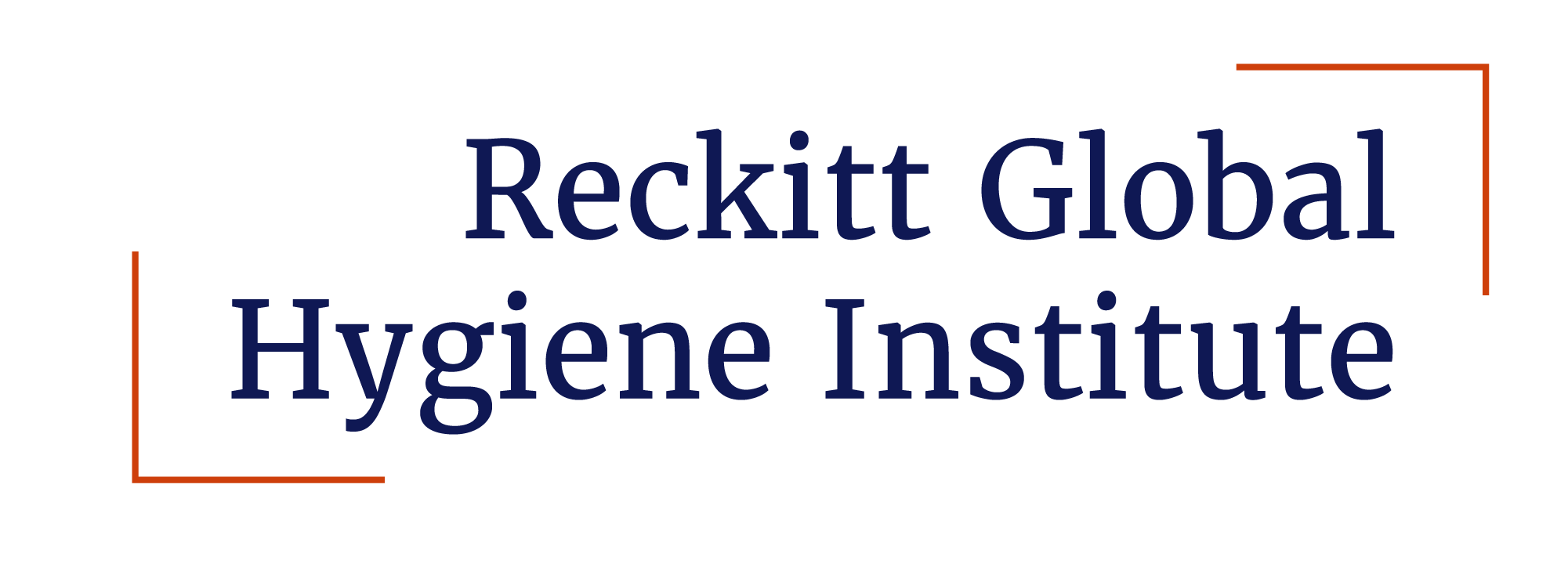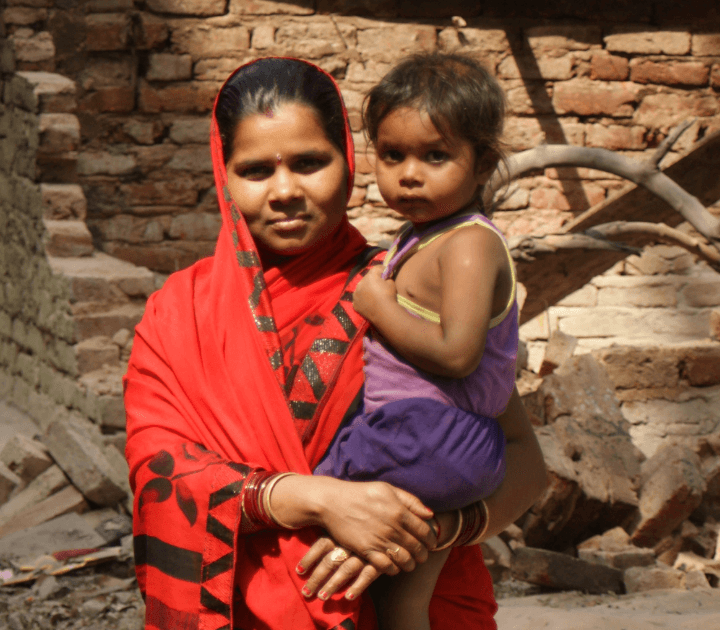World Health Day: Healthy Beginnings, Hopeful Futures
7 April, 2025
This year’s World Health Day focuses on maternal and newborn health, recognising the crucial need for high-quality care to prevent maternal and newborn deaths and prioritise women’s long-term health.
A critical factor in reproductive, maternal, and newborn health is hygiene. At RGHI, we recognise that hygiene is not just a basic necessity but a lifesaving intervention throughout a woman’s health journey. Poor hygiene during the menstrual cycle, pregnancy, childbirth and early infancy can lead to life-threatening infections, yet it remains an underprioritised aspect of healthcare.
Today we are bringing you a summary of RGHI-funded research related to reproductive, maternal, and newborn health.
Reproductive and Menstrual Health
The foundation for “healthy beginnings” starts long before pregnancy – with menstrual health and hygiene. RGHI-funded research is addressing critical gaps in this area, recognising that empowering women with proper menstrual hygiene management is the first step toward healthier families and communities.
RGHI Fellow Dr Sitsofe Gbogbo is exploring the relationship between menstrual hygiene management and depression among adolescents in Ghana. Dr Gbogbo’s research shows that schoolgirls with inadequate menstrual hygiene experience higher psychological distress. In Sub-Saharan Africa, limited access to menstrual hygiene products and facilities exacerbates this issue, contributing to higher rates of depression.
“Menstrual health is not just about managing a biological process but about fostering dignity, knowledge, and empowerment throughout a woman’s reproductive journey.”
– Dr Sitsofe Gbogbo, RGHI Fellow
Preliminary data suggest that girls with access to comprehensive menstrual health education develop better health literacy, which is essential for future maternal and child health outcomes. Limited hygiene facilities continue to contribute to school absenteeism and stress, reinforcing the urgent need for improved interventions.
In Bangladesh, Dr Elissa Kennedy, Dr Tanvir Hasan, and their teams at Burnet Institute and BRAC University are exploring how menstrual hygiene impacts reproductive health through an RGHI-funded International Collaboration Award. By monitoring adolescent girls through the Adolescent Menstrual Health Experiences and Health Cohort, the team aims to understand how unmet menstrual needs impact education, sexual and reproductive health, and overall wellbeing. With the longitudinal data from this study providing insights into potential pathways between girls’ early and changing menstrual experiences and hygiene, and their later reproductive health outcomes including contraceptive use, marriage, and pregnancy, the team hopes to drive policy changes and investment into menstrual health programmes, creating a bridge from adolescent health to future maternal well-being.
“Early menstrual experiences may shape their relationships with their body, engagement with health care providers, and establish long term hygiene practices, yet menstrual health and hygiene have been neglected as determinants of reproductive health.”
– Dr Elissa Kennedy, RGHI International Collaboration Award Holder
In Zimbabwe, RGHI Fellow Dr Mandikudza Tembo is leading the TAURA study, an innovative project that aims to transform menstrual health and hygiene by centring women’s lived experiences. Through participatory action research, Dr Tembo’s work is directly engaging with communities to address the often-overlooked social and cultural factors that influence hygiene behaviours.
“As a nurse, I encounter many women complaining about their periods—not being able to get pregnant, having issues doing their work because of pain… I hope TAURA will help me, help them”
– Participant in ‘Mwedzi’, a countrywide art competition organised by Dr Tembo to explore menstrual experiences through visual art
The study’s preliminary findings reveal a sobering reality: nearly all participants reported feeling isolated when managing their menstrual health, with many using potentially harmful solutions like herbal concoctions for pain and unhygienic materials to manage their flow. This isolation often leads to anxiety and depression—creating barriers that extend far beyond the menstrual period itself.
By co-developing a setting-specific menstrual health resource and training package, Dr Tembo’s work is empowering women to improve their health-seeking behaviours and overall wellbeing. This approach doesn’t just address immediate hygiene needs but builds a foundation for better reproductive health throughout women’s lives.
Maternal Health
Hygiene in maternal health settings is critical in preventing infections and complications during pregnancy and childbirth.
Social norms shape everyday hygiene behaviours, with profound implications for maternal health. RGHI Fellow Dr Giorgia Gon is investigating how these social expectations drive hygiene practices across key life stages in Cambodia, Bangladesh, and Uganda. Poor hygiene contributes to infections at birth, yet implementing sustainable behaviour change is incredibly difficult.
Dr Gon’s research integrates social norm measurement to understand what drives lasting behaviour change. In Cambodia, she examines surface cleanliness in maternity wards—a simple yet vital intervention that can dramatically reduce infection rates during childbirth. By identifying scalable interventions that leverage community norms, her work is helping to sustain healthier practices that protect both mothers and newborns during this vulnerable time.
Also exploring the theme of social norms, one of our newest funded projects led by Professor Surekha Tayade and Professor Zahiruddin Qazi at Datta Meghe Institute of Higher Education & Research is developing and evaluating hygiene protocols for labour rooms in rural India under an RGHI Innovation Grant. As a newly launched project, this initiative offers tremendous potential to transform labour room hygiene protocols and ensure safer births in resource-limited settings. By addressing preventable infections at the point of delivery, Dr Tayade and Professor Qazi’s work creates a vital link between quality maternal care and healthy newborn outcomes.
Newborn Health
Newborns are particularly vulnerable to infections, making hygiene in early-life care essential for survival and long-term health, especially in low-income countries.
An often overlooked but critical factor is food hygiene during the complementary feeding period. RGHI Fellow Dr Rehnuma Haque studies the link between child weaning practices and hygiene interventions in Bangladesh to prevent foodborne diseases Her research reveals that nearly half of complementary food samples were contaminated with faecal bacteria, increasing the risk of diarrhoeal diseases—a leading cause of child malnutrition and mortality.
Dr Haque’s work emphasises simple yet effective solutions that can dramatically improve outcomes for both mothers and infants. Through her direct engagement with communities, she’s witnessed firsthand how hygiene interventions during this critical transition period create lasting health benefits.
Read more about Dr Haque’s impactful research and the stories of mothers she’s worked with in her detailed blog post
From Healthy Beginnings to Hopeful Futures
The research supported by RGHI creates a comprehensive approach to hygiene throughout a woman’s health journey—from menstruation to motherhood and beyond. This work demonstrates how investing in menstrual health now ensures better maternal preparedness, healthier pregnancies, and improved wellbeing for both mothers and infants in the future.
The WHO’s theme “Healthy beginnings, hopeful futures” reminds us that health is a continuum, with each stage building upon the next. Through the dedicated work of our fellows and award holders, we’re learning how improved hygiene practices at each stage lead to better outcomes throughout this journey.
To improve maternal and newborn health outcomes, we must:
- Integrate hygiene education into all aspects of women’s healthcare, from adolescence through motherhood
- Support behaviour change programmes that promote safe hygiene practices within their cultural contexts
- Ensure access to clean water and sanitation in health facilities and communities
- Address both the physical and mental health aspects of hygiene in women’s lives
Hygiene is more than cleanliness—it is a tool for health equity, women’s empowerment, and lifelong wellbeing. By investing in safe hygiene practices across the entire continuum of care, we give every child a healthier start and every woman more control over her health journey.
On this World Health Day, let’s continue to champion the importance of hygiene as a vital component of global health and work together to create healthier, sustainable communities for all.
WHO is launching a year-long campaign to drive progress in these critical areas. Throughout the year, we will be checking in regularly to share updates, insights, and outcomes from our ongoing studies. Stay tuned on LinkedIn and BlueSky as we work together to create a healthier future for women and children worldwide!
Livia Mulligan, RGHI Communications Assistant


 Kondwani Chidziwisano
Kondwani Chidziwisano Rama George-Alleyne / World Bank
Rama George-Alleyne / World Bank